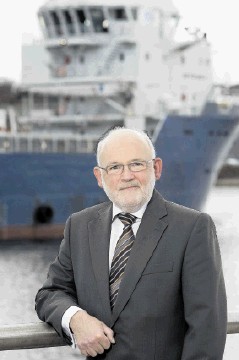
The North Sea’s decommissioning sector has a unique opportunity to pause and reflect before it hits a “bow wave” of work, a young professionals event heard in Aberdeen.
But as well as a looming mountain of work, estimated to be worth in excess of £35billion, there are complexities and challenges facing the industry, such as a growing consciousness of the impact of recycling.
While it has been seen as positive that the industry has managed to recycle some 98% of decommissioned facilities, a question is now being asked if this is the effective way of dealing with structures in terms of carbon emissions – due to the intense transport and resmelting of materials – the Energy Institute Young Professionals event heard.
The event, debating if decommissioning was “the beginning of the end” for the North Sea, heard about the complexities involved in the nascent sector, but the potential for people to forge a life-long career.
Speakers at the event were Austin Hand, project director Brent decommissioning, Shell UK, Roy Aspden, decommissioning manager, CNR International, Nigel Lees, operations director, BIS Salamis, Richard Brooks, head of offshore decommissioning at the Department of Energy and Climate Change, and David Lynch, VP resource North Sea region, BP.
Brian Nixon, chief executive of Decom North Sea, said: “There is a growing awareness of decommissioning. The early feedback is that it is more complex and complicated than anyone foresaw. there are major career opportunities here for a wide range of people and the decommissioning sector has a unique opportunity to pause and reflect at this stage before it hits a bow wave of activity, to think about innovative and efficient ways of going about this business.”